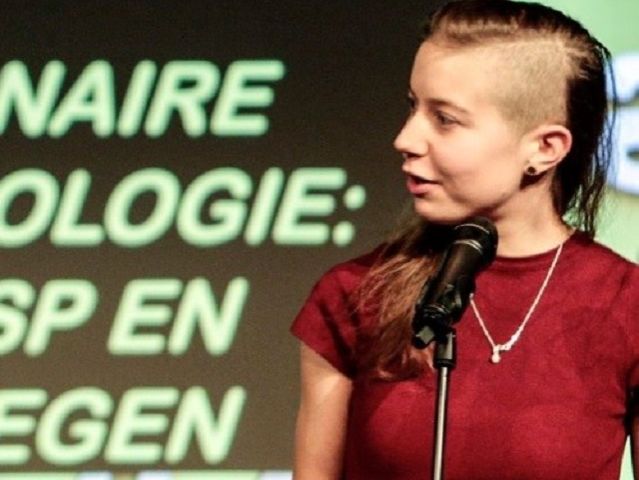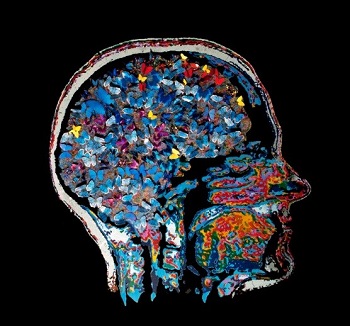Hypothesis: Are scientists artists as well?

Science, on the contrary to art, seems to be based on logic and objective thinking. Scientists – you - observe, measure and manipulate to understand the world around us, and maybe - hopefully, let’s be honest - discover something truly amazing. However, are your amazing pipetting skills and all the memorized facts in your brain enough to become an influential ground-breaking researcher? In other words, can you discover something unknown, with knowledge and logic reasoning alone? Think about it. Really, think about it.
How do you find something if you don’t know how it looks, feels, behaves, or where it is in time and space? Or, whether it even exists at all… (pessimistic speaking)?
Although researchers apply various methods to measure the world, all experiments start-off with a question, a curiosity, a rebellious thought. Maybe a smell, or change in colour might have made you think about the “how”, “what if” or “why”. Yet, that very moment you start to wonder is most crucial, because you have led go of your knowledge, logic and objectivity. You were creative and started to use your imagination.
Interestingly, this is what artists do continuously. They use their senses and intuition to explore new ways to capture the hidden truths with music, paint, voices or words. Like a scientific experiment, the creation of a play or a song is also a process that starts with an observation, a question, and is further explored with the use of “instruments”. Whereas artists use their hands, paint, or voices, scientists use their pipettes, questionnaires, and computer models, to pursue what they have imagined (their hypothesis or vision). Both however require knowledge and skills to use these “instruments”. With trial and error an experiment is setup, a book is written and a film is made. Only one (scientists) use an objective, logic approach while the other (artists) use an intuitive subjective approach to capture the world.

The outcome of the scientific and artistic experiment can be seen as a “product”. While scientists express it in a scientific paper with graphs, tables and written condense conclusions, artists express themselves in a performance, a painting, a sculpture or a book. With this product, scientists - mostly - aim for answers. Artists on the other hand often aim to provoke something, an emotion or discussion. So, does the scientific method to capture the world lead to something different then the artistic one? Conclusions drawn by scientist are - often - “only” true for a specific case and moment; extrapolation to other scenarios is aimed for but questionable, as it requires more experiments. Scientific theories are therefore always subject to change, and go along with exceptions. Therefore, the product of science is, or should be, subject of discussion. Like art, it should maybe also aim to provoke. (Whether scientific papers are the best way to achieve this, is another discussion.) Because how do you know for sure what you have found is right and is the full version? You cannot see and measure everything, unfortunately.
So, there you are. Hoping to discover something great. Facts and logical thinking is what you have learned in school. These might be the “tools” that you rely on most often. Imagination, intuition and creativity are maybe left aside, but are crucial. The unknown can only be approached with an open and creative mind. What if you set your objectivity away - for a moment - and observe again.
Think of yourself as an artist. Observe. Smell. Feel. Taste. Question again. Use your imagination, your intuition and expect the unexpected. Think like an artist. Be an artist. As scientists are artists as well. Are we?
